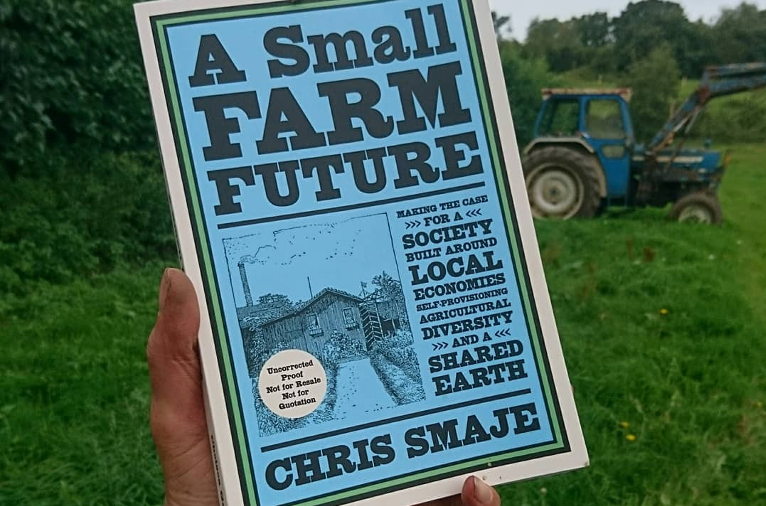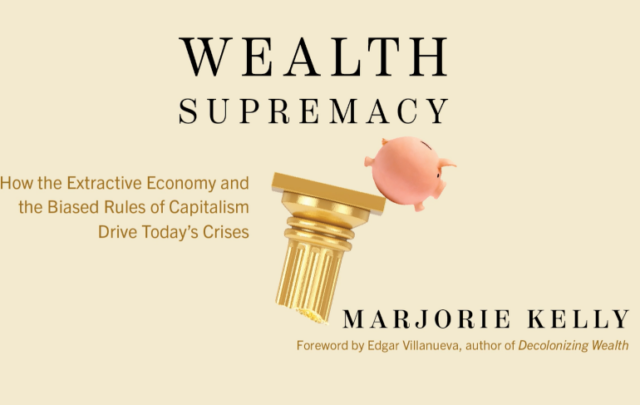I’ll start this post with a quick shout out to the good folks of Just Stop Oil putting themselves on the line for a habitable future, and seemingly getting noticed less than other recent climate actions of more generalized protest. Indeed, there’s been more coverage in the press of the allegations against my local MP than of Just Stop Oil. If these turn out to be true, it might explain the difficulties of trying to get a meaningful response from his office. What was it XR have been saying about the need to go ‘beyond politics’…?
Anyway, on to the main business of this post: after various digressions, diversions and interruptions, I’m almost at the end of this part of my blog cycle within a blog cycle about property and tenure in a small farm future. My argument, in a nutshell, is that there will be private property in a well-functioning small farm future (but not in the form characteristically advocated by right-wing and pro-capitalist analysis) and there will be collective and common property in a well-functioning small farm future (but not in the form characteristically advocated by left-wing and anti-capitalist analysis).
One remaining item left standing from discussions here about these matters is the question of land value tax (LVT). The case for this was famously made by Henry George in his 1879 book Progress and Poverty. The basic idea is that the monopoly rent that accrues to the landowner from the fact of their ownership is taxed away. So if you were playing a game of Monopoly (which in fact was originally invented by a Georgist to illustrate the point), you would have to pay back to the bank all the money accrued from the rental income of your properties at the end of each round. Obviously, this would stop anyone from winning or losing the game through the exercise of monopoly rent, and people would have to find other ways to move around the gameboard of life. Which was precisely George’s point.
As I recently said in my analysis of death taxes, I can’t claim any special expertise as a tax analyst, but – far less than death taxes – I’m not a great fan of LVT, and here I’ll try to explain why.
Of all the redistributive schemes that people have dreamed up for levelling inequalities in capitalist societies, LVT is one of the few that often gets the blessing of mainstream capitalist/neoclassical economists. But it hasn’t been widely implemented by capitalist governments. In that apparent paradox lies a truth that really needs to be better known. While the theory of capitalist economics is all about private enterprise and the rewards to innovation, the practice is largely about monopoly rent, without which the system hits the buffers. As cheerleaders for the non-monopolistic profit-seeking that’s supposed to be how capitalism works in theory, mainstream economists like LVT because it’s consistent with this convenient fiction. As managers of how capitalism actually works in practice, governments are less keen because it puts obstacles in the way of normal capital accumulation via monopoly rent.
But arguably not very big obstacles. Nowadays, and much more than in George’s time, monopoly rent is only partly about land and property and is more about intellectual property rights, financial instruments and government contracts. So as a way of redistributing the spoils of capital, LVT is a partial measure at best. But I think we must go further. As Michael Hudson suggests in this interesting article, George himself had no objections to the general workings of the capitalist political economy. He simply opposed one of its most obviously brutal consequences. Karl Marx wrote that George’s programme was “a last attempt to save the capitalist regime”. He was wrong. There have been many subsequent and partially successful efforts to save it. But he was right that it was such an attempt (George never really addressed what happened to the tax revenues once the Monopoly players had paid them back to the bank). And also right, I think, that ultimately the regime will prove beyond saving.
So while the logic of LVT, rightly in my opinion, mitigates against the sheer ownership of land or property allowing the owner to make money, this in itself does nothing to stop the owner from using land as an input to generate and accumulate as much money as possible. No wonder mainstream economists prefer it to, say, income tax, which they see as ‘distorting’ of the full-bore capitalism they tend to regard as the natural order of things. Their enthusiasm should surely raise suspicions among those who don’t regard it this way. LVT is not in itself an especially good way to decommodify or redistribute economic goods.
In agricultural settings, LVT fits readily within the mould of an agricultural improver ideology – the kind I criticized in A Small Farm Future (pp.48-9). Think, for example, of John Locke’s argument that colonial expropriation of indigenous lands in North America was justifiable because Europeans could make them more productive and remunerative. Contemporary applications of LVT are rarely so unjust, but once a land tax has been set at some average level of return in the wider economy, decommodification towards smaller and more localized farm scale would be quite impossible. Within the present framing of the capitalist political economy, LVT sets the capitalist snare that forces ever greater returns on investment, and happily watches it tighten.
In theory, perhaps this could be avoided through tax exemptions on small properties. But I can’t really see how a low input ecological small farm sector could survive long term in a world where the accumulation of liquid capital is otherwise incentivized, and where large-scale owners would be gunning hard to extract returns in excess of their tax bills. Maybe the point of the policy would be to make it impossible for large-scale owners to turn any profit at all. But in that case, levying a profit-incentivizing tax probably isn’t the best policy intervention.
Maybe there’s a stronger case for LVT in urban settings, where property owners can cash out heavily from high property values resulting from local concentration of economic activity, and not from anything connected with their own enterprise. Cleverer people than me could probably determine the implications for tax bases, planning and zoning laws and the gaming of urban/rural boundaries in that scenario. But again, my feeling is that even in this instance LVT is a rather indirect way to try to achieve something that needs to be addressed more directly.
That was certainly the view taken by the aforementioned Karl Marx, another popular writer-activist of the 19th century. While George was agitating for the state to levy a tax to somewhat improve the lot of the working class, Marx was agitating for a more direct approach. This involved the working class taking over state functions and using the leverage thereby gained to radically transform the lot of everyday people. But Marx was pretty vague about exactly how it would do that once the state was in its hands, and in my opinion the words and deeds of later Marxist thinkers and governments haven’t been overly impressive in tackling that question.
So while an LVT might be a slight improvement on the present situation, I can’t get hugely excited about proposals to end human misery either through an LVT charged by the central state or through overthrowing the centralized state to create … another centralized state. To me, the political futurologies of both George and Marx seem rooted in a past era that barely speaks to our present one, with its endogenous state failure and ecological collapse. Which raises the question of what alternative futurology might just see us through these hard times. Since that’s roughly what I address in the later parts of my book I’ll end at this point, poised to get into those issues (though I have a little ground clearing to do in the next couple of posts first).






